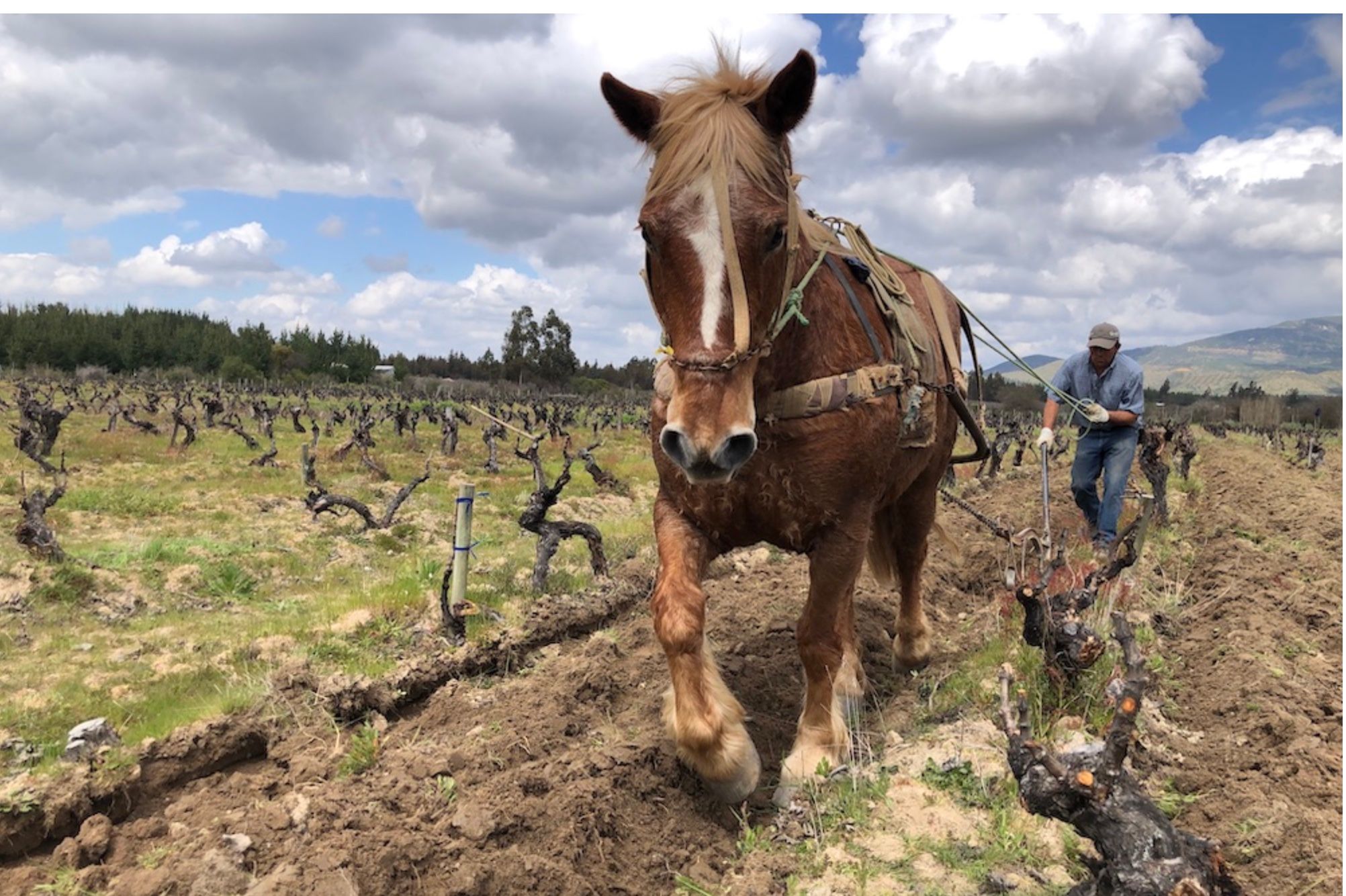“Old vines are not delicate museum pieces, they are living breathing patrimony. They have ongoing needs. While it is a good first step to revive them, it is also necessary to reconnect them with the local economy. Only can we then hope to sustain them.” The Garage Wine Company’s Derek Mossman Knapp explains his winemaking philosophy.
The wine industry is no different to any other sector that produces and supplies goods and products to retailers and third parties to sell. Every wine business in that industry is responsible for employing and looking after people either directly, or indirectly down the supply chain it helps to create. How well it does that is down to the individuals that run it.
It also has one other big responsibility and that is looking after the raw materials, the vines, grapes and vineyards that allow them to make wine to sell in the first place.
They are responsibilities that Derek Mossman Knapp and his wife, Pilar Miranda, and the Garage Wine Company have taken very seriously ever since they first started making wine in Chile back in 2001. A business very much rooted not just in making good quality, premium Chilean wine, but in how it can “be a force for good” for the communities they work in and with, says Mossman Knapp.
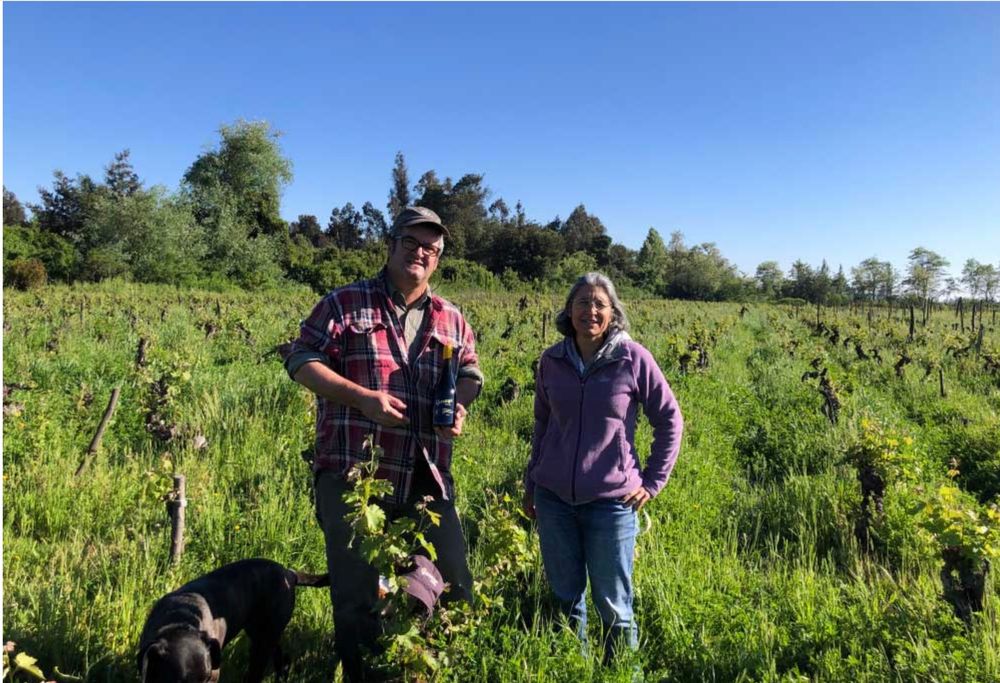
Derek Mossman Knapp and his wife Pilar Miranda have worked hand-in-hand with local communities in Maule, Chile, to revive old vineyards and provide them with a new and sustainable source of income
Its Old Vine Revival is one example of what it has been doing for more than two decades. “The project not only regenerates life in the soil of the vineyards and with it the vines themselves, but also the community,” he says.
“Most old vines, wherever they are, fall into decline for similar reasons: they are too far from centralised modern wineries (not to mention paved roads), their rows are too narrow to mechanise (they were planted before such machines existed), they are often too small to yield enough fruit to fill a truck, and they have no water source for drip irrigation.”
He adds: “Mainstream winery labels are not apt for such challenges. The margins may be better, but there is no potential to scale if the label becomes a hit. There are principles that should apply to any business that depends upon raw materials—in this case: grapes. A business produces and supplies goods to importers and distributors for retailers and hospitality. A business makes it, or not, by creating a viable supply chain. How well they do this depends upon the individuals that run it, but that is not the whole picture. Business has one other crucial responsibility, and that is looking after the source of raw materials, the vines and vineyards that allow them the fruit to ferment into wine in the first place.”
Elbow to elbow
These are responsibilities that Mossman Knapp and his wife, Pilar Miranda, and the Garage Wine Company have taken very seriously ever since they first went to Maule back in the early 2000s. Theirs is a business rooted not just in making fine wine from old vines, but also: how a business there can be “a force for good”. A force to insure the vines are in better condition due to the work it does.
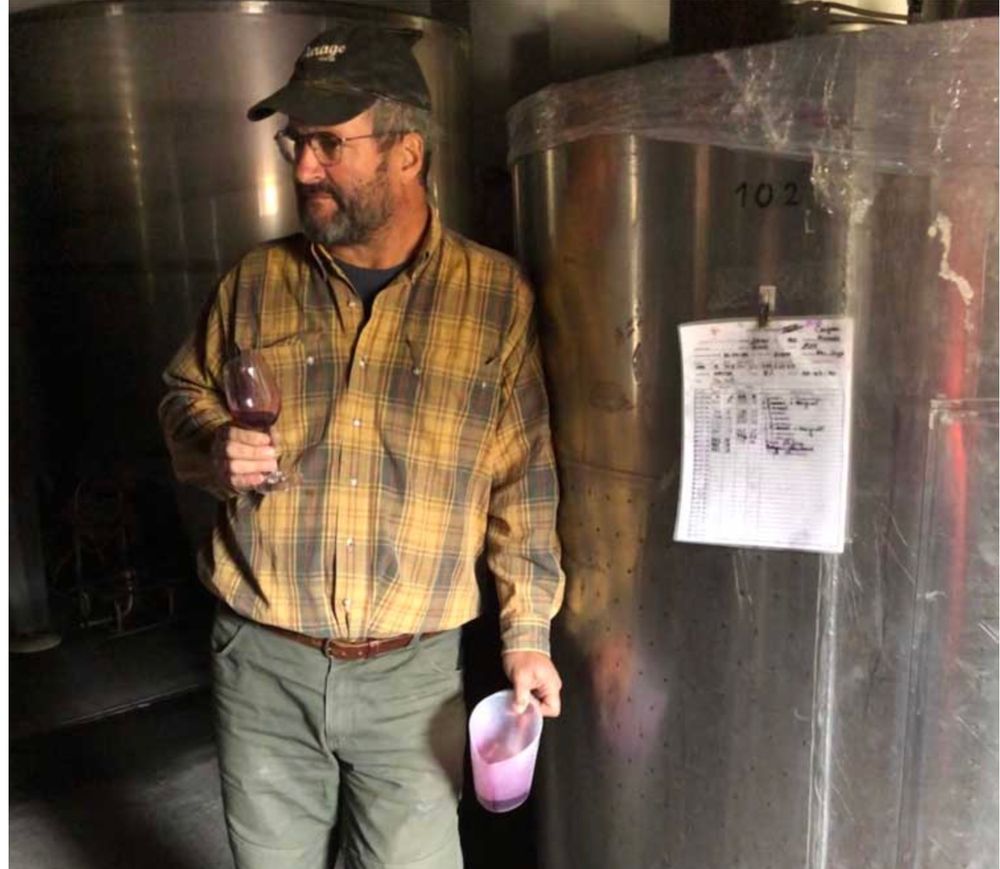
Derek Mossman Knapp does not just want to make great wine – he wants to be a “force for good” and help the communities that help him look after the vineyards, grow the grapes and make the wine to sell
“Do things better, and work harder, and eventually the hardest working farmers who are doing things better will want to do business with you. This is what has allowed us to gain momentum harvest after harvest,” he stresses.
“There was an established and more direct route to grow a winery business—we didn’t take it. I remember concerned colleagues insisting we contract out and keep our labour costs low, but in short order we realised that making proper wine depended upon growing quality fruit and that depended upon the people working the vines and our direct involvement with them ‘codo a codo’– elbow to elbow.”
It’s also not the easiest option to take. “Old Vines are hard work. It is not a sunny day, good times kind of business. It´s long term, incremental work, going against the grain, and the odds, with continued duress. To make progress you must conjure up new ways to keep going forward.”
Which brings us to the “Old-vine Revival” label which was was created to keep people safe during the pandemic.
Mossman Knapp explains how it came about: “Fate conspired against us, when Covid began spreading just before harvest began. We doubled down. There was a case that came too close to home when a worker with Covid shared a van shared with other workers from other towns to travel to prune on a farm farther south.We thought about what could happen if the pandemic took hold in the community and looked at how we could create a safe work environment using controlled family bubbles. That’s when we thought about reviving old Pais vines in their own neighbourhoods that were being neglected. All we had to do was to find a buyer(s) for an en primeur unnamed wine made from the all but unknown variety.
Trade supportEn Primeur
He is quick to praise Garage’s UK distributors, Freixenet Copestick, for getting behind the project from the start calling managing director, Robin Copestick, his “co-conspirateur” who had been equally inspired about what they could do to help local workers and their communities through such a difficult and anxious time.
For Copestick it was about making a commitment to “help finance a wine” that could make a genuine difference “that we could believe in”. It was about helping a community to be able to maintain its independence by “reconnecting it to the wine trade” to keep family farms and skills going.
Copestick explains: “When I visited the vineyards for the 2022 harvest, I was struck by the quality of the grapes that were being picked as well as the passion and teamwork amongst the vignerons who were at once workers and vineyard owners. It makes for a delicious, but also unique wine. We are delighted to be associated with such a project and hope there is a better chance more of the younger members of the community will see opportunities to stay on the farm.”
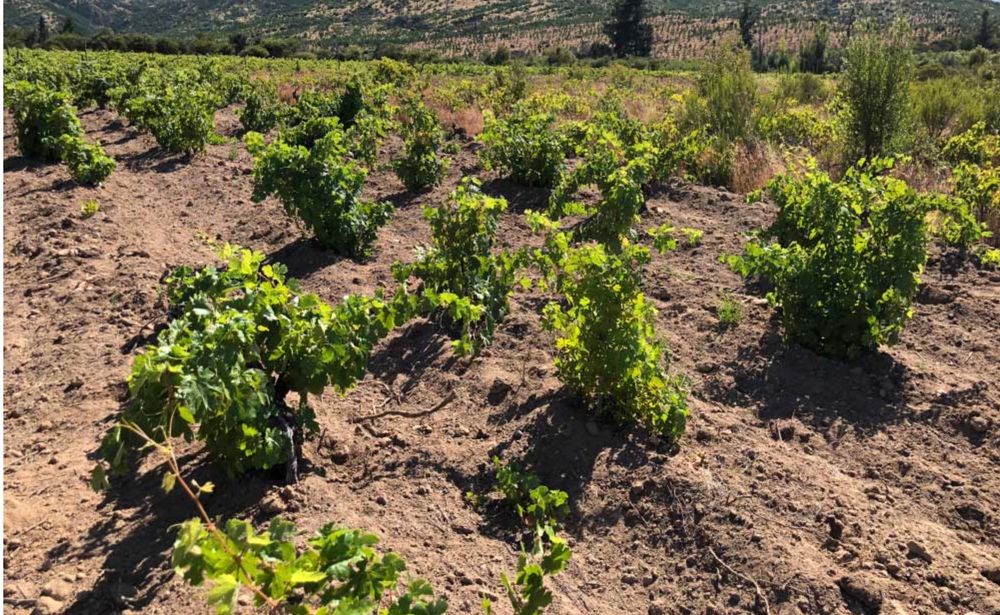
The Revival País vineyard in Maule that has been brought back to life thanks to the work of Garage Wine Company and the local community
Mossmann Knapp says he is particularly pleased to have the chance to work with País: “It’s such a wonderful grape variety and has such an amazing story to tell.”
Its history in Chile is documented as far back as 1548, shortly after it arrived from the Canary Islands and soon became the wine served for Catholic Mass.
The fact 20 plus generations of winemakers have gone before him making País makes it even more special, he adds. And the fact it is now the hipster grape variety that all the cool wine bars want to have in Brooklyn.
“It goes back to before when Michelangelo was painting the Sistine Chapel in the Vatican. It’s an honour to play what is a short cameo role in the stewardship of these vines.”
Farming across the centuries
The soils and land where the old Pais vines are planted have been so neglected that it is particularly hard work to break it up and allow the vines to shine again, he adds. It’s why they use traditional farming methods with a horse and plough.
“You are really having to toil the land here. The traditional way of farming is very much in keeping with how the local community lives. They are in tune with the land, the seasons and what they are growing and eating through the seasons of the year. They live on the land, by the land and for the land.”
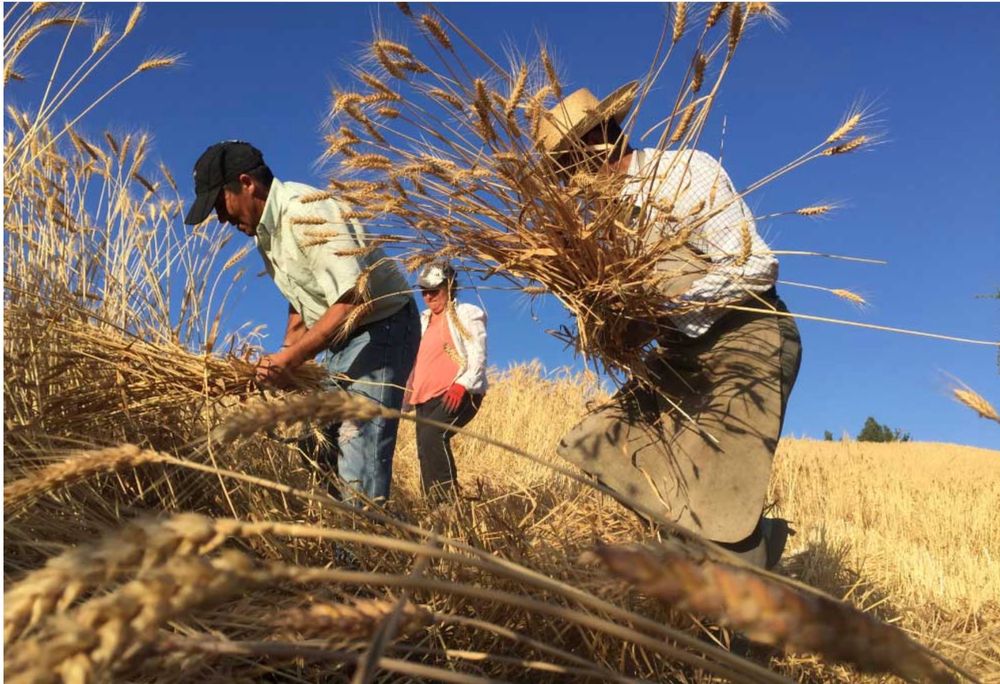
The farmers in Maule maximise what they can get out of their land and are pretty much self sufficient as a result, says Derek Mossman Knapp
“The farmers are, in many ways closer to the traditions and way of life from all those years ago than today. As well as working with grapes, they grow a wide range of vegetables ripe at different times of the year and they keep their own animals. That way they are pretty much self sufficient and don’t rely entirely on their grapes.
“It is a kind of 360 degree farming – or what the gurus would say: holistic. They can teach us a lot more than just how to grow grapes that are balanced and flavourful. I didn’t study viticulture in a classroom and lab, I learned with boots on and sleeves rolled up. I think it fascinating the farmers wait for the luna menguante, or waning moon before pruning, having no inkling what bio-dynamics is or who Steiner was. When coming to visit, it is important to show up in work clothes and dig in.
“We are working with people who are citizens of the earth. They can teach us so much. It has been fascinating to better understand their approach to agriculture. They eat better than we do.”
He adds: “You have to show them we are in as deep as they are and want to do business with them for the next 50 years. That’s how they respect you.”
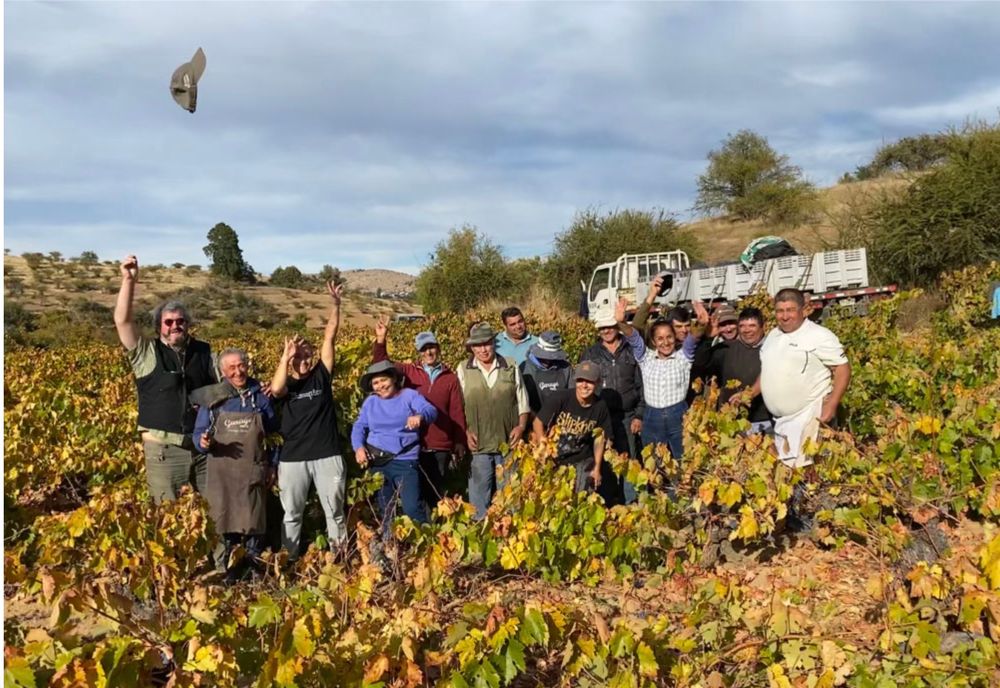
Derek Mossman Knapp, left, celebrate another harvest in Maule with his local co-workers and partners in Garage Wine Company
Old-vine Revival is one of a franchise of initiatives that Garage has taken on over the years. Following the 2010 earthquake in Chile, Garage worked with local growers in Maule to make wines made from neglected vines of Cariñena. They grafted field blends on small farms extending existing old-vine Cariñena with Garnacha and Monastrell and called the wine The Ploughmen.
When the wild fires hit Chile in 2017, and the region of Maule in particular, Garage introduced its Phoenix label: a País-Cariñena made white, “born of the ashes” that meant grapes were being paid for when far too many wineries stepped back leaving the farmers in the lurch.
“There have been many challenges, but what hasn’t killed us has made us stronger and gotten us working harder.”
He adds: “My wife Pilar says we are being tested by the elements: first earth, then fire and then air. We doubt the deluge is coming any time soon. Each provided an opportunity to get more of the families and their vineyards included in the works, building strong links with the small farmers through better understanding of where the pressure points are.
“Today we buy from almost everyone on our harvest–pruning–earthworks team. When incorporating sites, we show them how we want to work, what we are doing on other sites and bring them into our shared journey. When our importers visit, we all share lunch and stories about the wines on tables around the world. Together, we learn to look at our soils differently. We adopt skills and knowledge from all sides.
Working in partnership
“Our model is to: One – own in part; Two – rent in part; and three – purchase fruit in part. In this way we can: One – show by example; Two – support farms where elders are slowing down and unable to do all the physical work; and three – always be trying new things and supporting new vignerons who share our vision as we grow.”
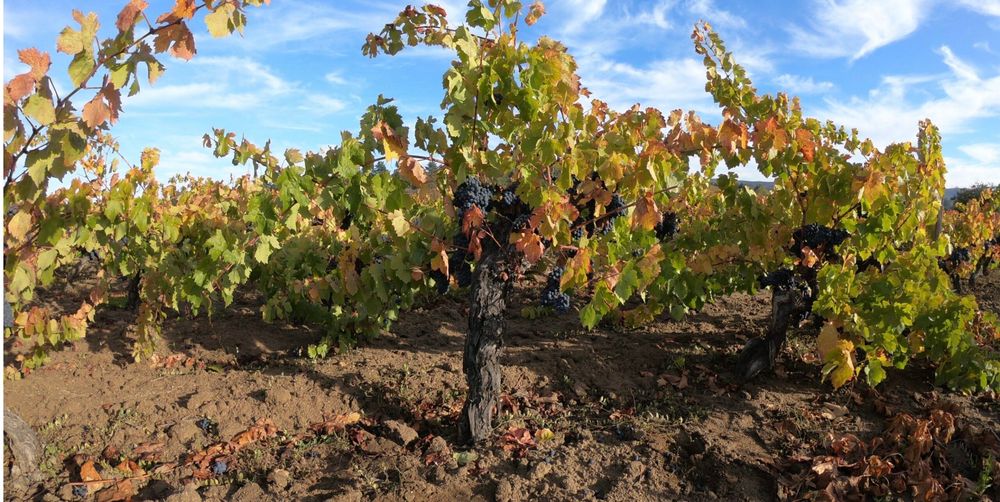
The old vines at Garage’s Truquilemu vineyard
He adds: “Working in this way, it is natural to adopt longer-term ideas for doing business. Business as a means for doing good is just another way of saying long-term business. If hundreds of years ago settlers planted vineyards to last hundreds of years, is it so difficult to stretch the measuring stick to measure a little further ahead?”
Farming, he argues, is not as sexy as geology in today’s wine trade, but it is critically important.
“If the farming has stripped the soil, between the rocks and the vines, of organic matter so that funghi and bacteria can no longer do their work, then what will transform a site’s geology into something a vine’s roots can absorb? You can analyse all the subsoils you want, but living soils are crucial to their expression in the glass,” he says.
Bringing Maule to the trade
Mossman Knapp says he is particularly enjoying taking these ideas and sharing them with the on-trade and business development team at Jascots, the on-trade arm of Freixenet Copestick, where, he says, there is a real focus on introducing the wines to the right customers.
He says: “London has a tremendous sommelier community. I am humbled by the time and attention they afford us, and intrigued by the dialogue. Some days I am more than a little bit intimidated. We began in the Garage, and for a dozen years no one knew us or imagined our precarious beginnings. Today there is a bar to maintain and we do not take it lightly. Buyers no longer consider us quirky, they know the wines and want to know more about their making. We are in a half a dozen countries, including Poland, Denmark, Romania, all because a sommelier working in London went home and insisted Garage should be on the list there.”
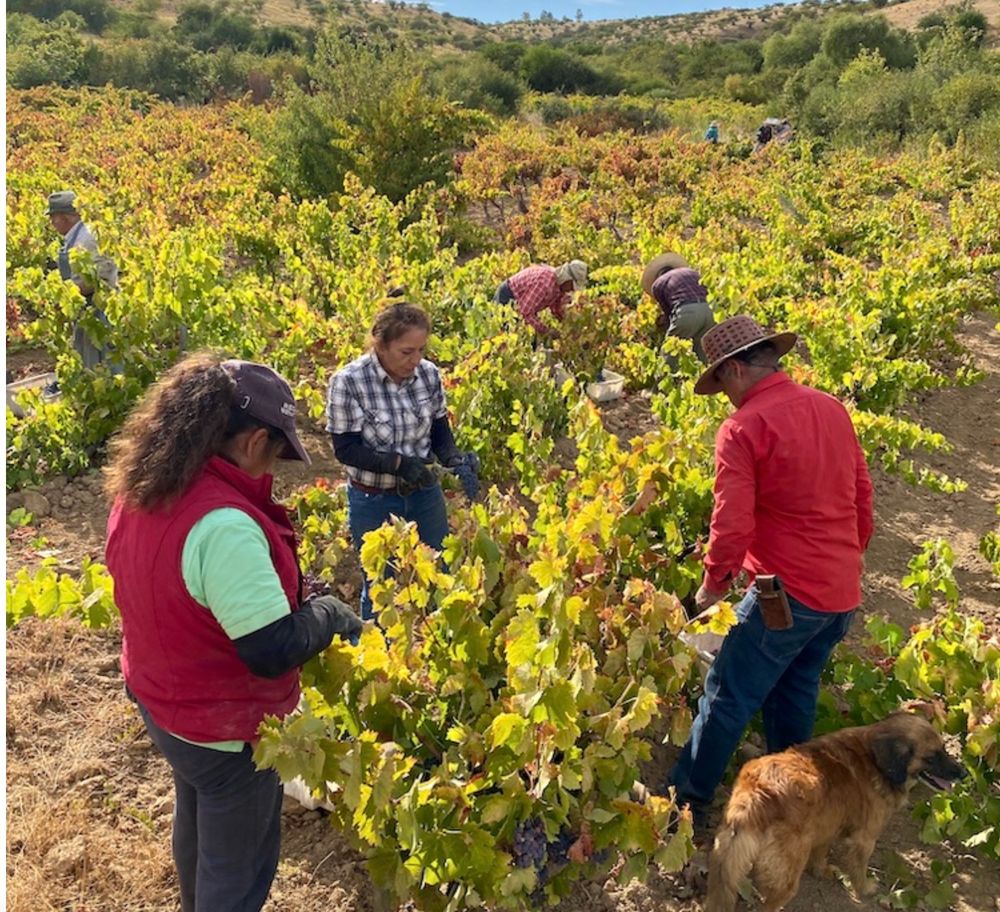
Understanding the soils, vines, climate and how they can all work together is a key part of Garage Wine Company’s approach to regenerative viticulture
It can, he says, seem a long way from Maule in Chile when he is out introducing his wines to sommeliers in fine dining restaurants in central London, and other major cities around the world. But he is also mighty proud to have the chance to tell the story about how those wines were made and the fact that running a wine business can genuinely be a force for good.
They are also making very good quality wines. It is, for example, tied for the highest rated Chilean wine ever in Jancis Robinson MW’s Purple pages and Cru Truquilemu and Vigno by Garage are the highest rated wines from Chile by Luis Gutierrez on Robert Parker’s Wine Advocate.
Mossman Knapp admits getting critical success for the wines has meant they have been much wider tasted when Cariñena, and or Chile, would not otherwise have been considered for the list.
“For the last 10 – 15 years we have worked hard to tell the story of old-vine Maule. I had to jam my foot in many a door of those who were not interested in New World all-to-well-associated-with-supermarket wines. That has changed. No one buys on ratings, but their curiosity gets them tasting and the wines do the rest.”
Old vines specialist
“We are an Old-vines specialist. Slowly, but surely, we have changed the conversation to this. And old vines has opened up lists and opportunities for many beyond just our humble Garage Wine Co. The very idea that a Cariñenas from the coastal range would rock the foundations of blue-chip Cabernet from Maipo was crazy – but when the wines were recommended as being more cellarable, that, yes, made us happy. But, beyond the joy and contentment for Pilar, Alvaro, Ernesto and I, without doubt this is a broader recognition for the old vines of the Maule and Itata and for the farmers who have been the stewards of these vineyards and this viticulture for generations, and for wine made small on purpose— more hand and land, less brand.¨
Which takes him back 10 years and when he and Pilar were wondering what difference Garage Wine Co could make and what gave them the confidence to follow the path they have.
Mossman Knapp answers quickly: “Put that way, it is the easiest question today: Working with the small farmers in Maule, we were standing on the shoulders of giants”
- The Garage Wine Co wines are distributed in the UK by Freixenet Copestick, including the new 2021 País Old Vine Revival wine and are available to the on-trade through Jascots and direct to consumers at www.slurp.co.uk.
